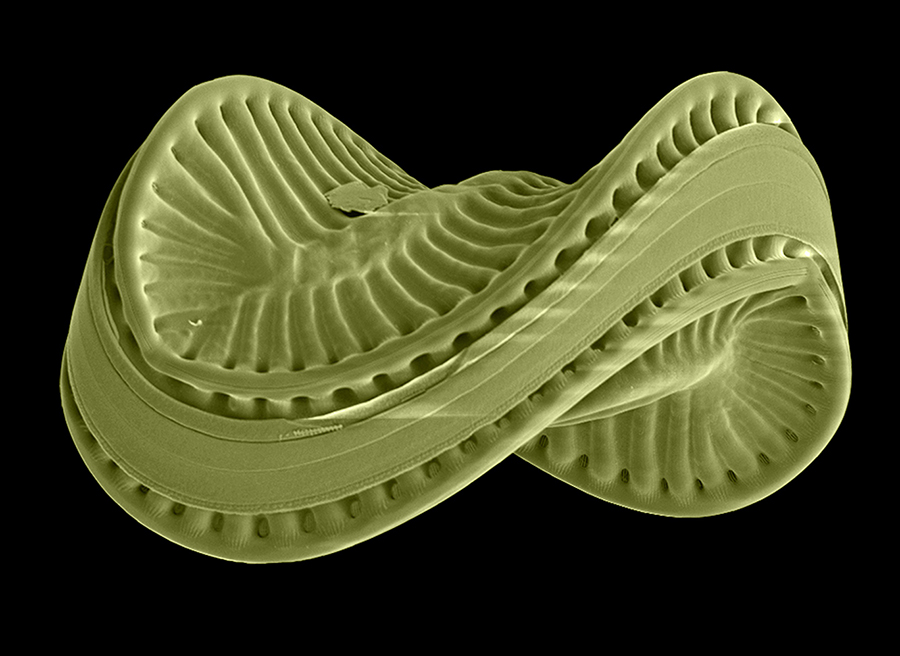Deep drilling in Europe’s oldest and most species-rich lake provides new insights into evolution
The older and more stable an ecosystem is, the longer lived its species and the more stable the species communities are.
02/10/2020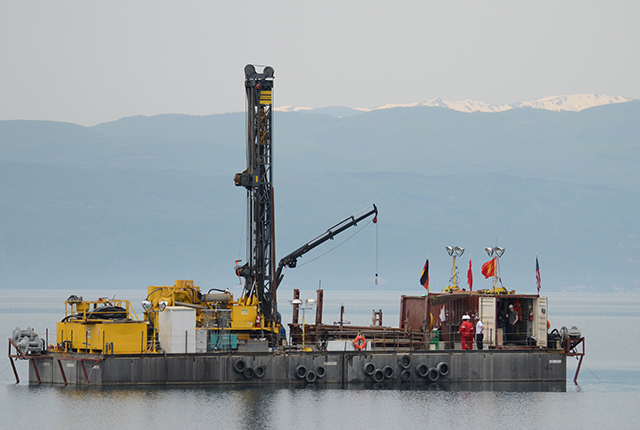
An international research team led by the Justus Liebig University Giessen and the University of Cologne, in collaboration with BGS, gained these new insights into evolution by drilling deep into the sediments of Lake Ohrid.
The 1.4-million-year-old lake on the border between Albania and North Macedonia is not only the oldest lake in Europe, but with more than 300 endemic species, i.e. species that only occur there, it is also the most species rich.
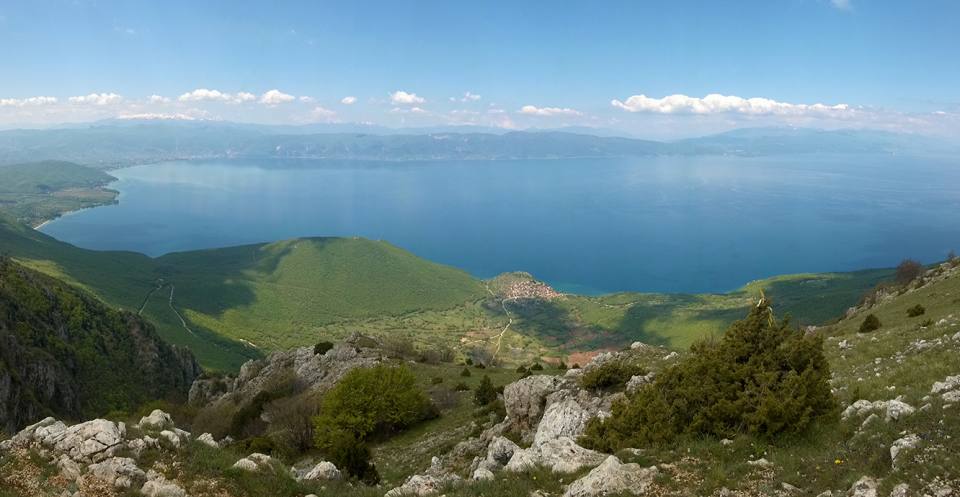
The 1.4 million year old Lake Ohrid on the border between Albania and Northern Macedonia (Photo credit: Thomas Wilke).
To study the evolutionary dynamics of Lake Ohrid since its formation, the scientists combined the environmental and climate data of a 568-meter-long sediment core with the fossil records of over 150 endemic diatom species.
Dr Jack Lacey, a geochemist from BGS, used chemical data from the mud to understand past changes in the hydroclimate of Lake Ohrid.
The combination of our data and the fossil diatom record of Lake Ohrid provide us with a link between geological processes, environmental change, and the biological evolution of endemic species within the lake.
Using geochemical data from the layers of mud that built up over time at the bottom of Lake Ohrid, we have unravelled a 1.4-million-year history of lake development and climate change, that are interwoven and captured in the sediment record.
Dr Jack Lacey, BGS Geochemist.
The data show that shortly after the formation of the lake, new species emerged within a few thousand years. Many of them died out again very quickly in the relatively small and shallow lake.
The research team explains this by the fact that young lakes of small size offer many new ecological opportunities, but are also particularly sensitive to environmental changes such as fluctuations in temperature, lake level, and nutrient availability.
The geochemistry of lake muds is a recorder of past changes in rainfall and major shifts in the water level of Lake Ohrid.
After the lake became deeper and larger, as indicated by shifts in the geochemistry, the speciation and extinction processes slowed down dramatically.
The scientists attribute this to fewer new habitats emerging, the species richness approaching an ecological carrying capacity, and an increasing environmental and climate buffering of the lake.
The finding that, in the history of Lake Ohrid, a volatile assemblage of evolutionarily short-lived species developed into a stable community of long-lived species provides a new understanding of the evolutionary dynamics in ecosystems.
The study, which has now been published in the journal Science Advances, has importance for future biodiversity research.
Citation
Wilke, T, et al. 2020. Deep drilling reveals massive shifts in evolutionary dynamics after formation of ancient ecosystem. Science Advances, Vol. 6(40), eabb2943. DOI: https://doi.org/10.1126/sciadv.abb2943
About the author
Relative topics
Related news
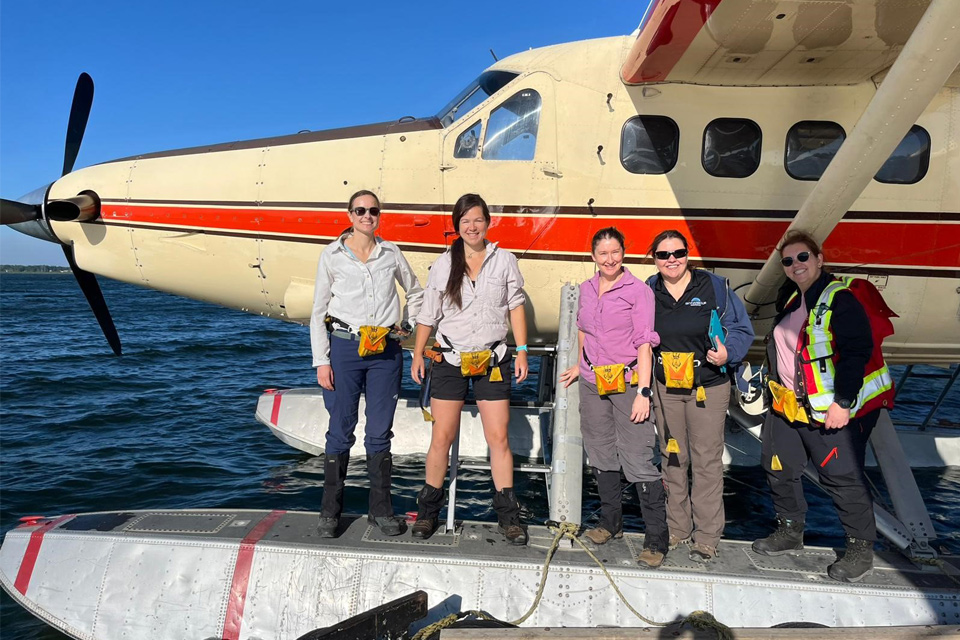
Funding awarded to UK/Canadian critical mineral research projects
08/07/2025
BGS is part of a groundbreaking science partnership aiming to improve critical minerals mining and supply chains.
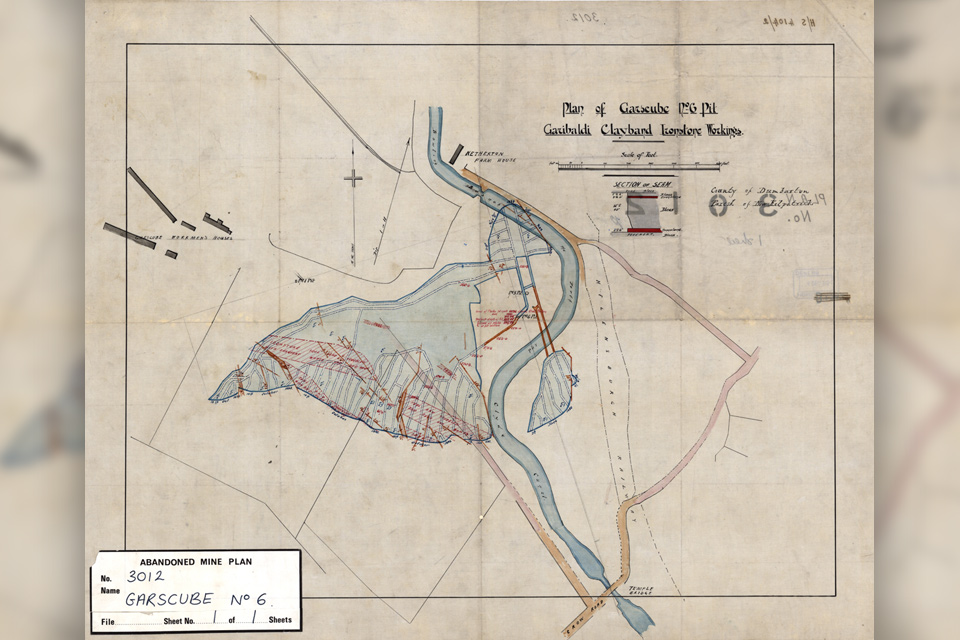
Release of over 500 Scottish abandoned-mine plans
24/06/2025
The historical plans cover non-coal mines that were abandoned pre-1980 and are available through BGS’s plans viewer.
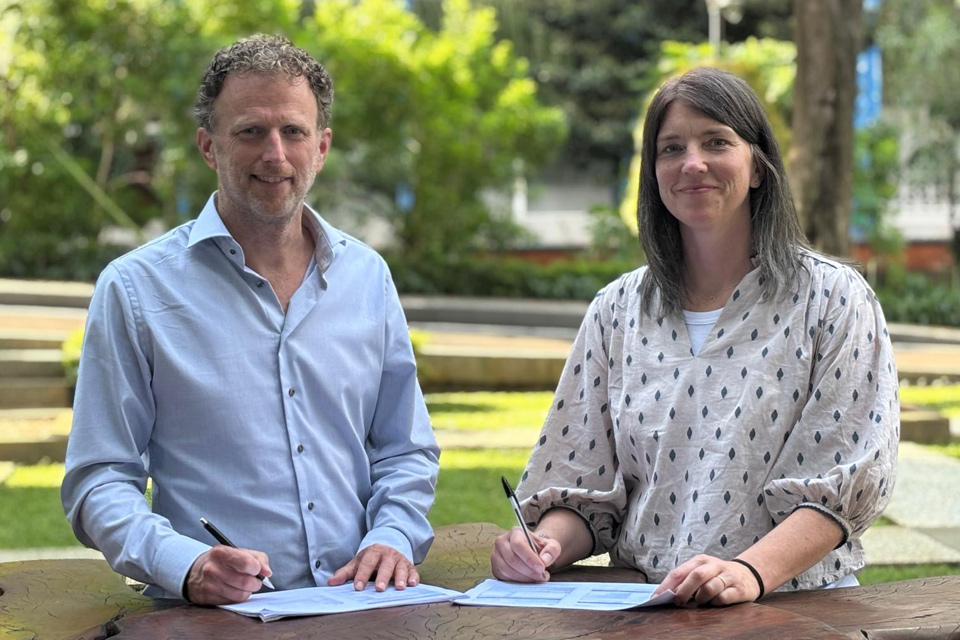
New collaboration aims to improve availability of real-time hazard impact data
19/06/2025
BGS has signed a memorandum of understanding with FloodTags to collaborate on the use of large language models to improve real-time monitoring of geological hazards and their impacts.
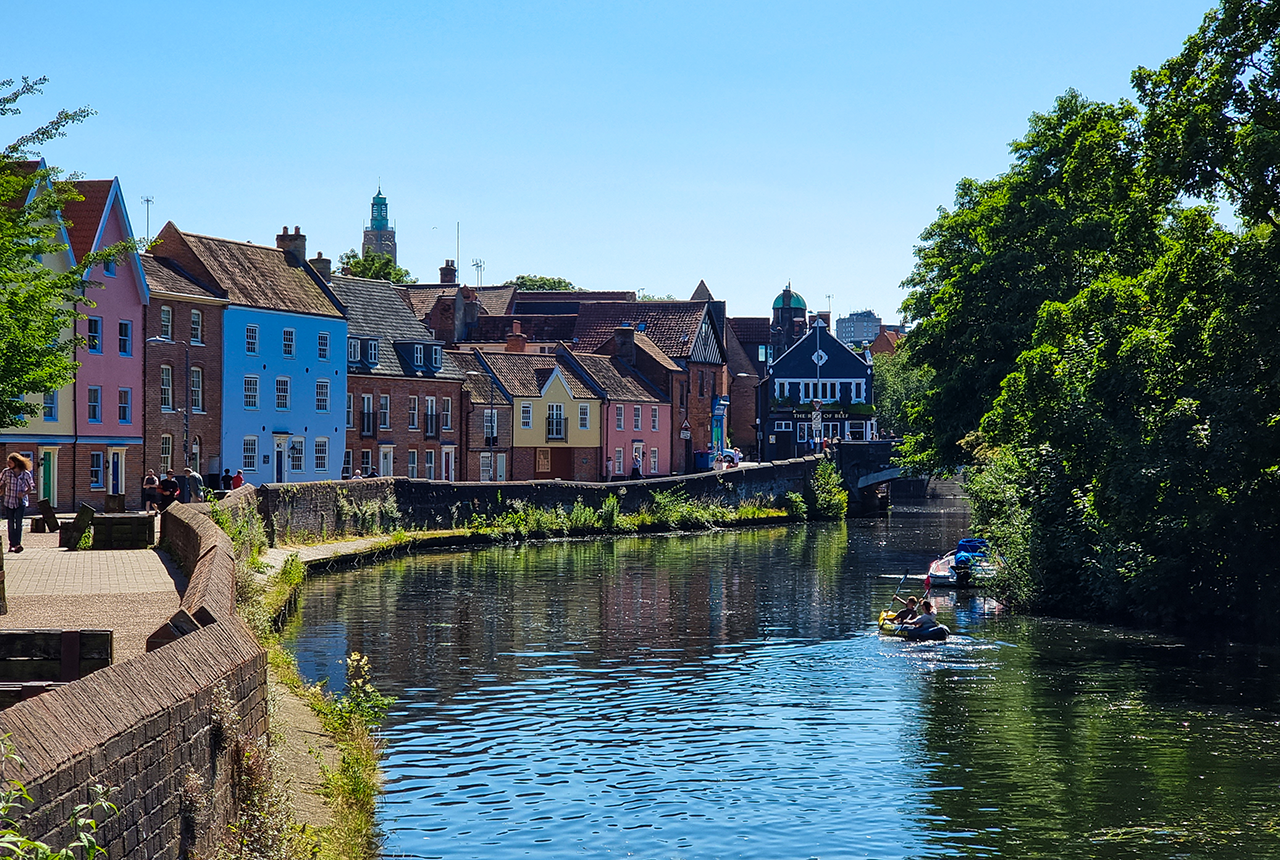
Modern pesticides found in UK rivers could pose risk to aquatic life
17/06/2025
New research shows that modern pesticides used in agriculture and veterinary medicines have been found for the first time in English rivers.

Goldilocks zones: ‘geological super regions’ set to drive annual £40 billion investment in jobs and economic growth
10/06/2025
Eight UK regions identified as ‘just right’ in terms of geological conditions to drive the country’s net zero energy ambitions.
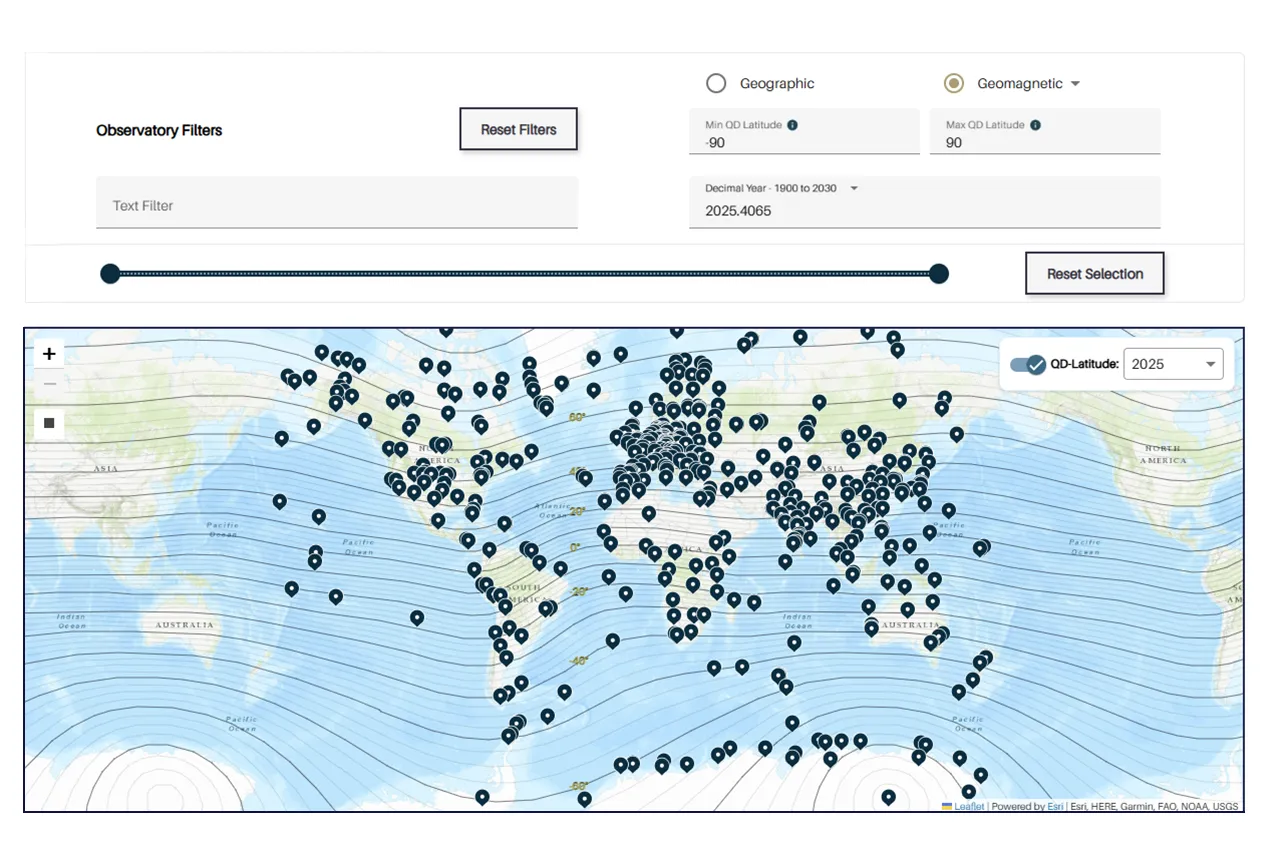
Upgraded web portal improves access to geomagnetism data
02/06/2025
BGS’s geomagnetism portal, which holds data for over 570 observatories across the world, has received a significant update.

BGS digital geology maps: we want your feedback
29/05/2025
BGS is asking for user feedback on its digital geological map datasets to improve data content and delivery.

What is the impact of drought on temperate soils?
22/05/2025
A new BGS review pulls together key information on the impact of drought on temperate soils and the further research needed to fully understand it.
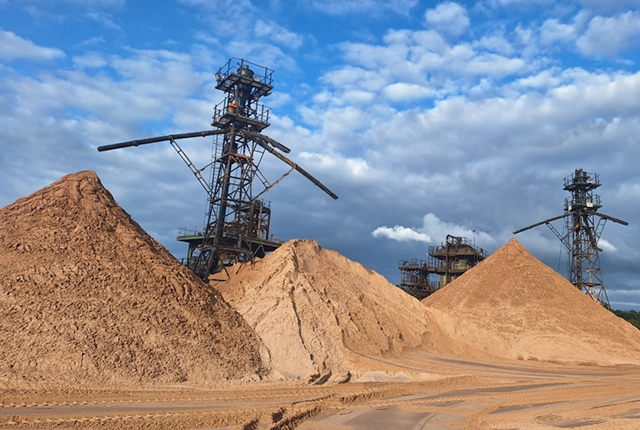
UK Minerals Yearbook 2024 released
21/05/2025
The annual publication provides essential information about the production, consumption and trade of UK minerals up to 2024.

BGS scientists join international expedition off the coast of New England
20/05/2025
Latest IODP research project investigates freshened water under the ocean floor.

New interactive map viewer reveals growing capacity and rare earth element content of UK wind farms
16/05/2025
BGS’s new tool highlights the development of wind energy installations over time, along with their magnet and rare earth content.

UKRI announce new Chair of the BGS Board
01/05/2025
Prof Paul Monks CB will step into the role later this year.




